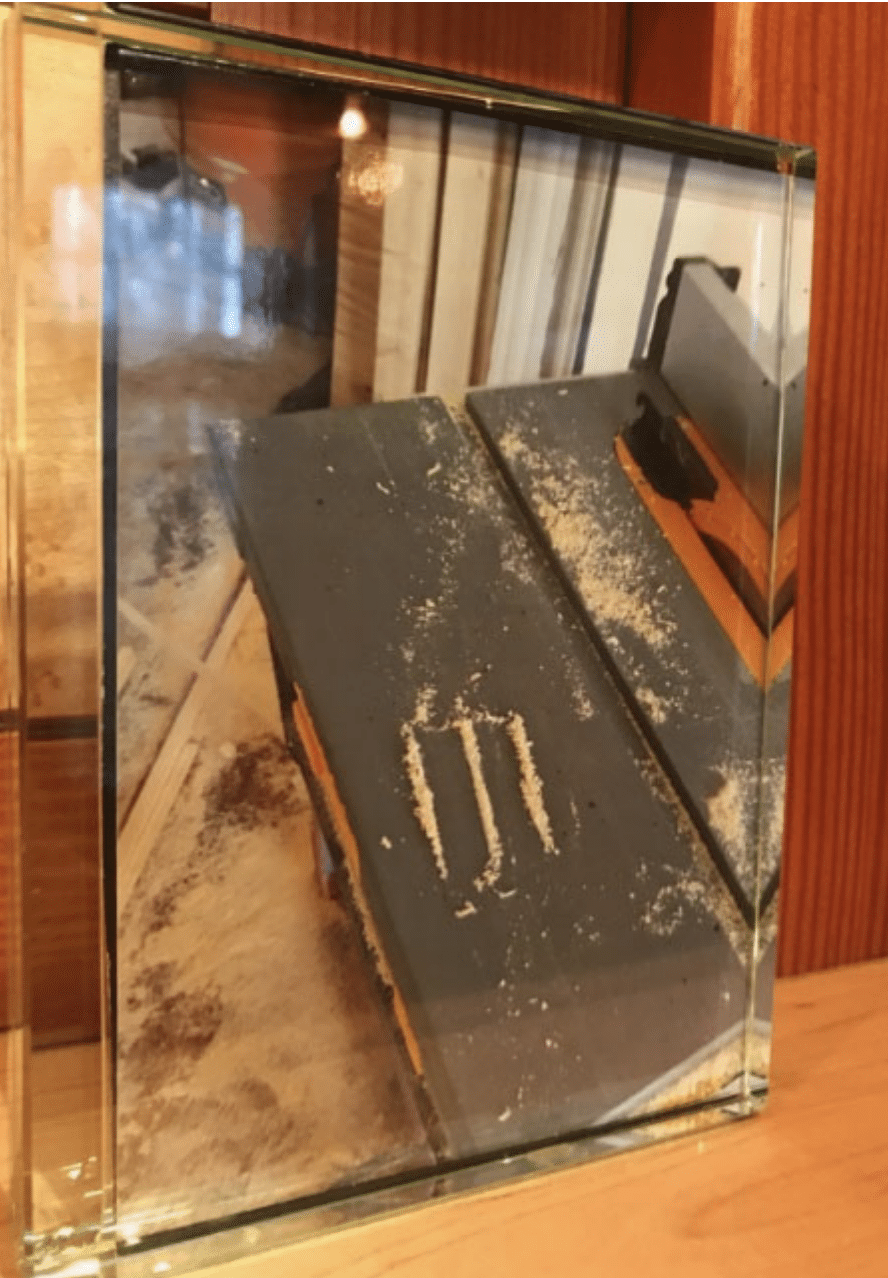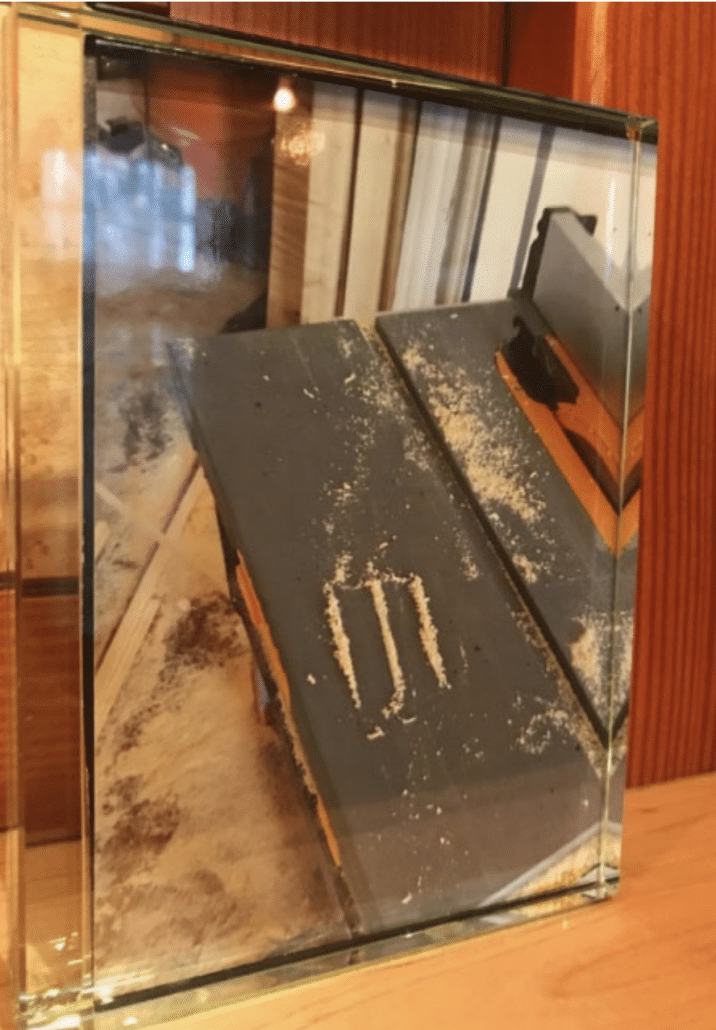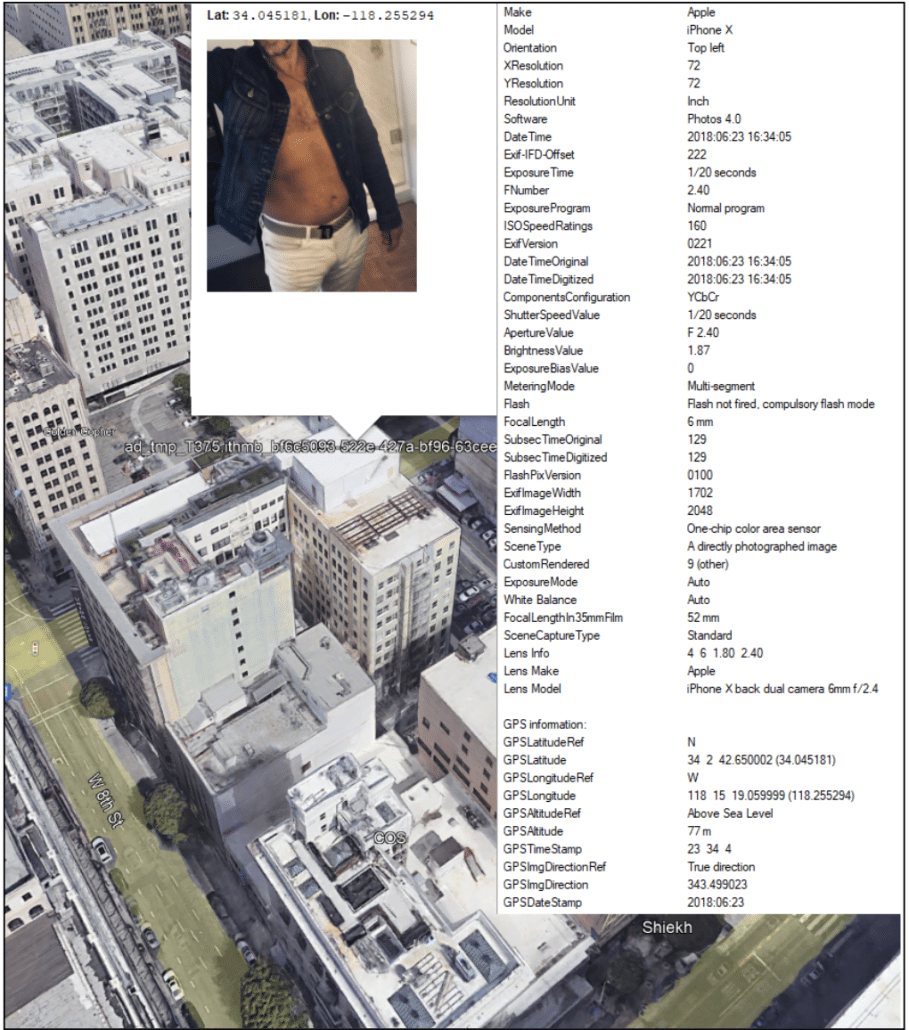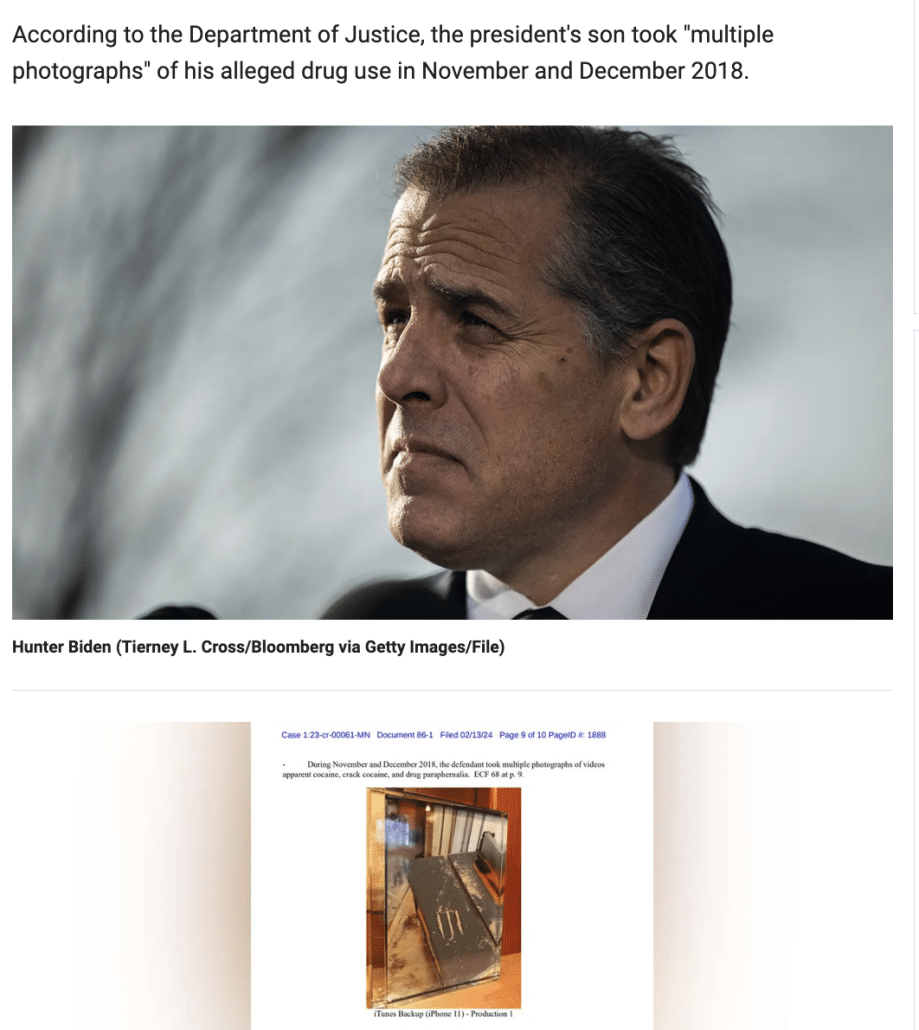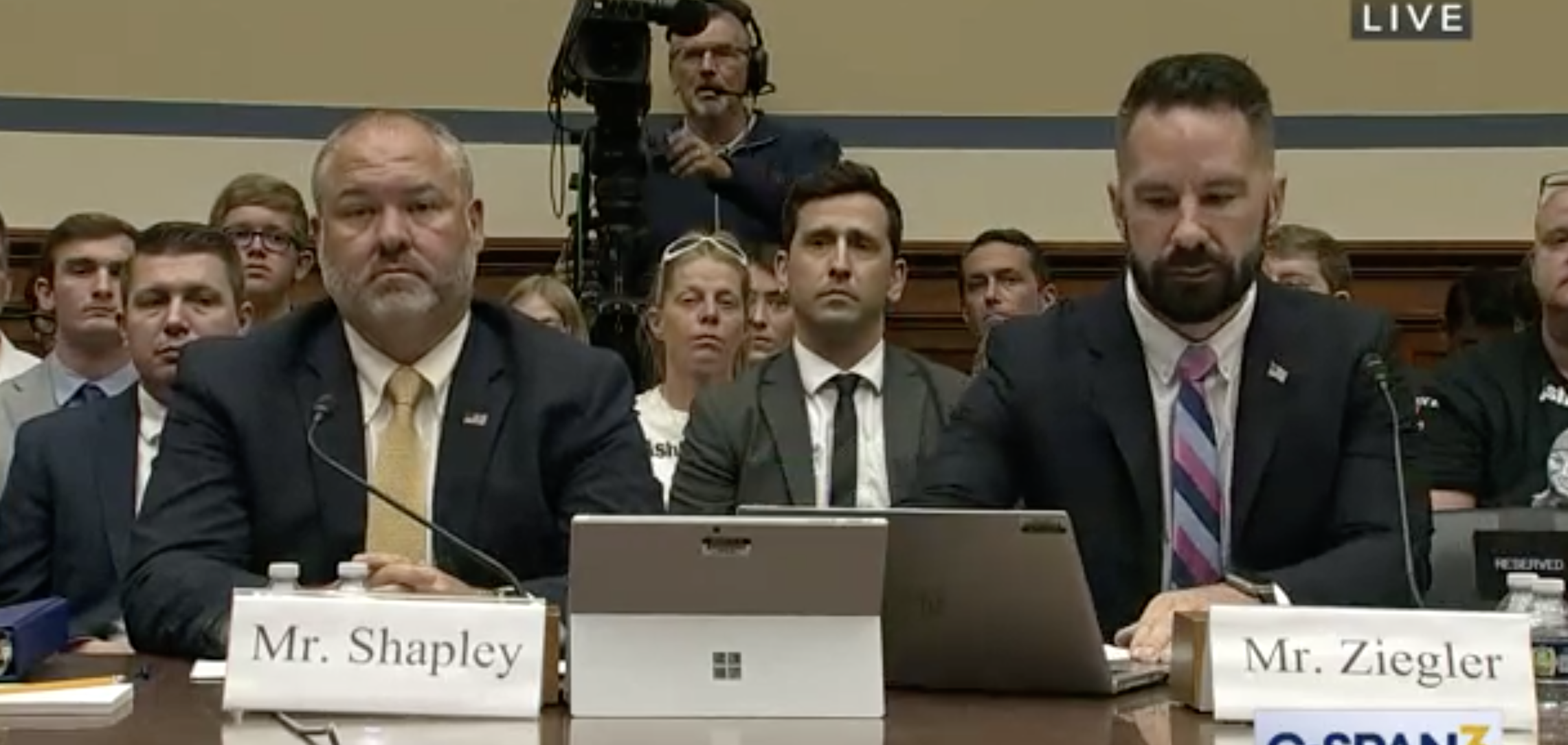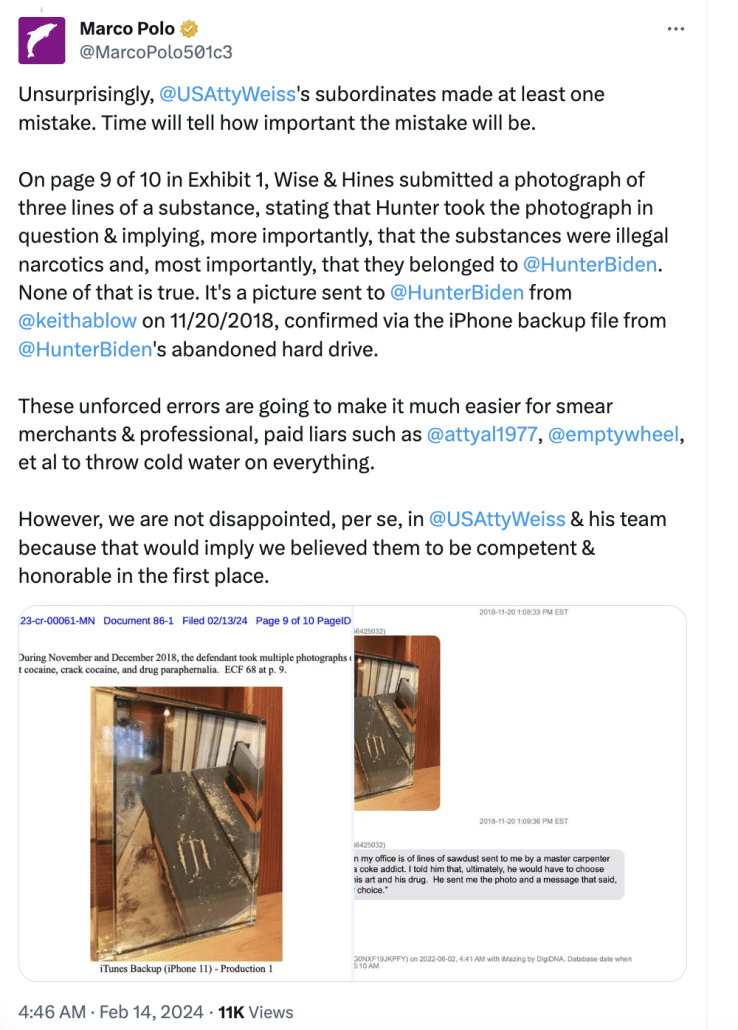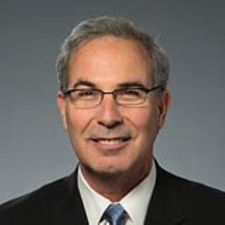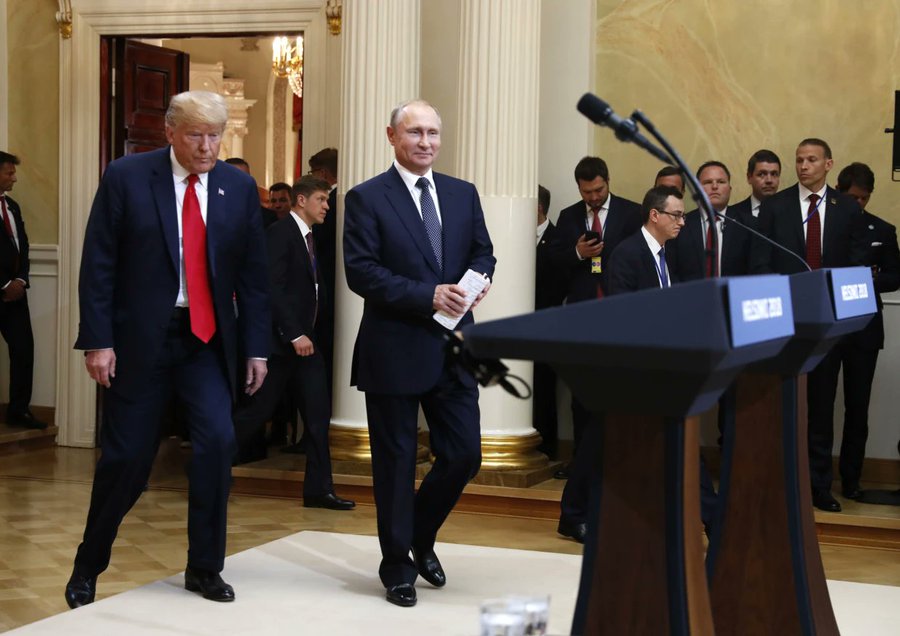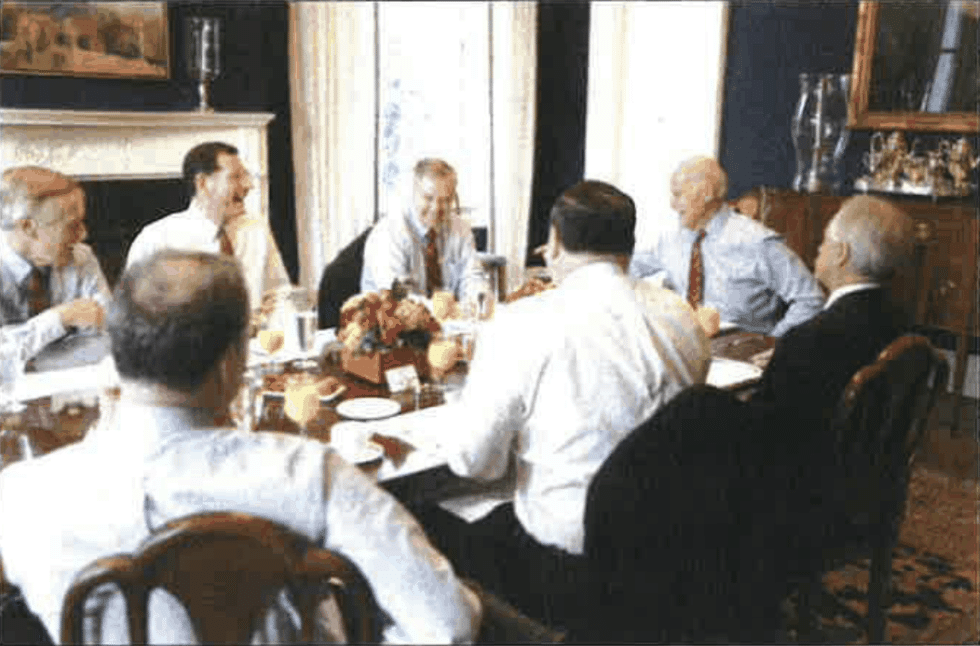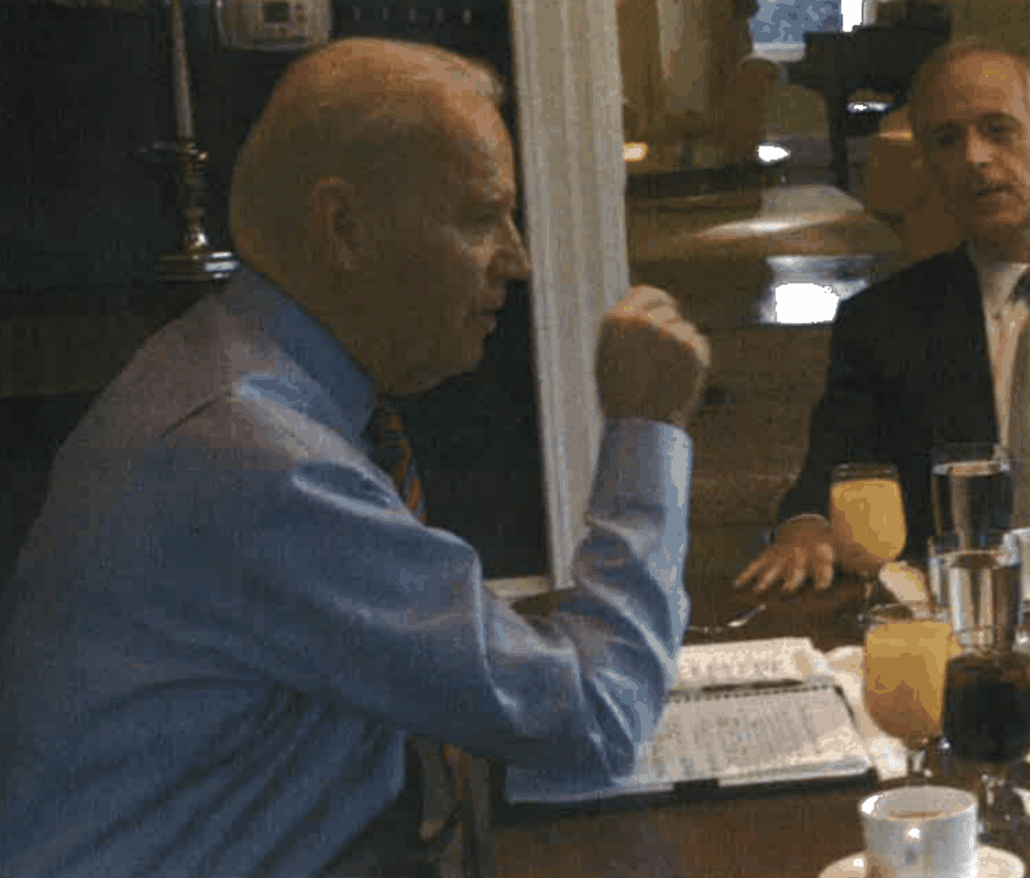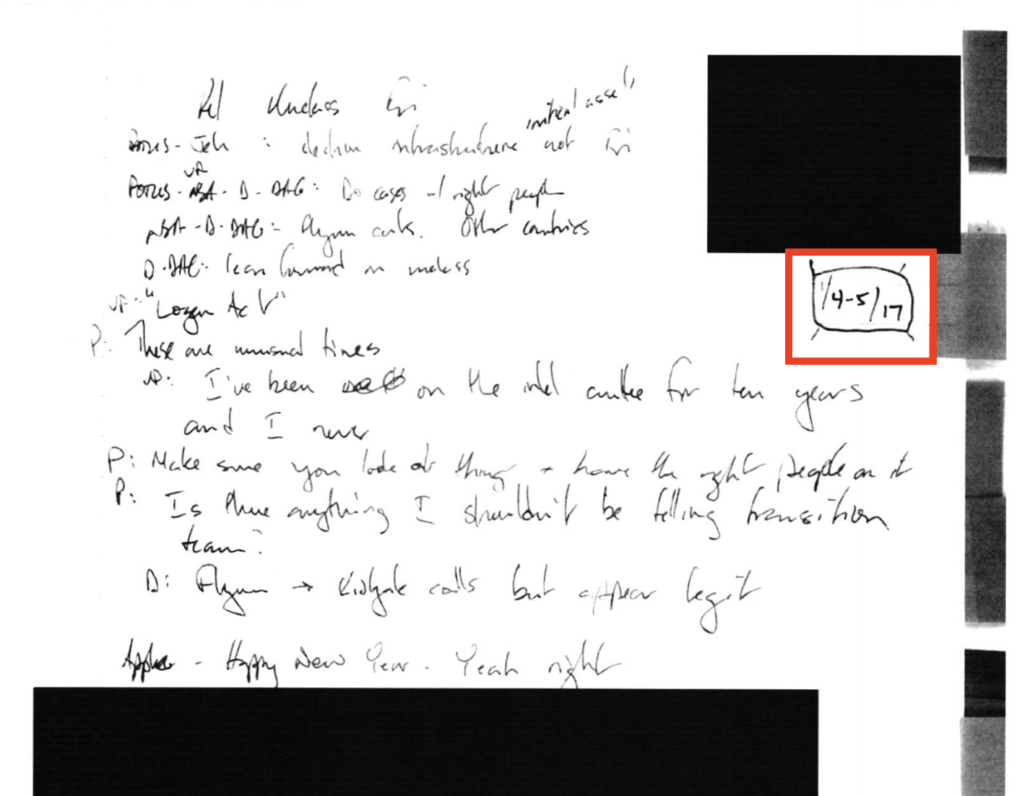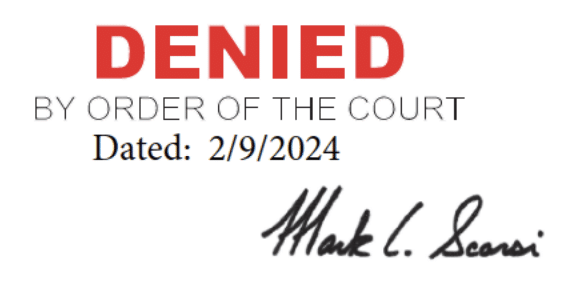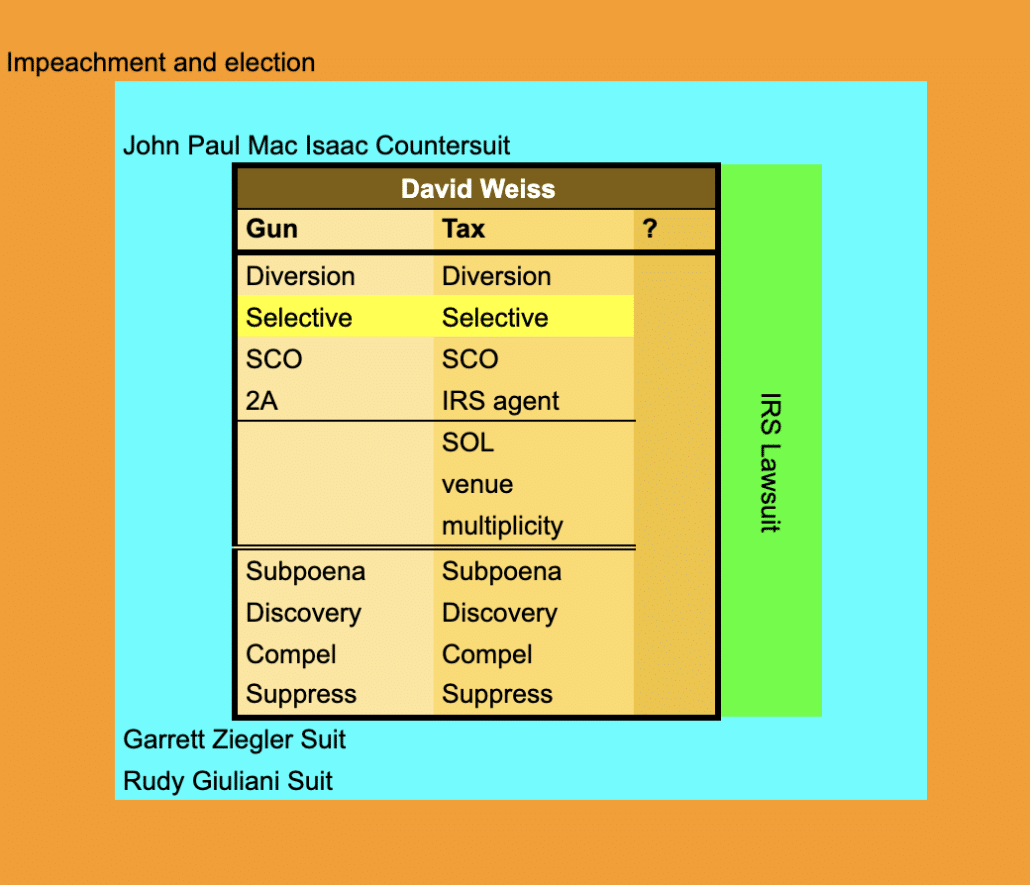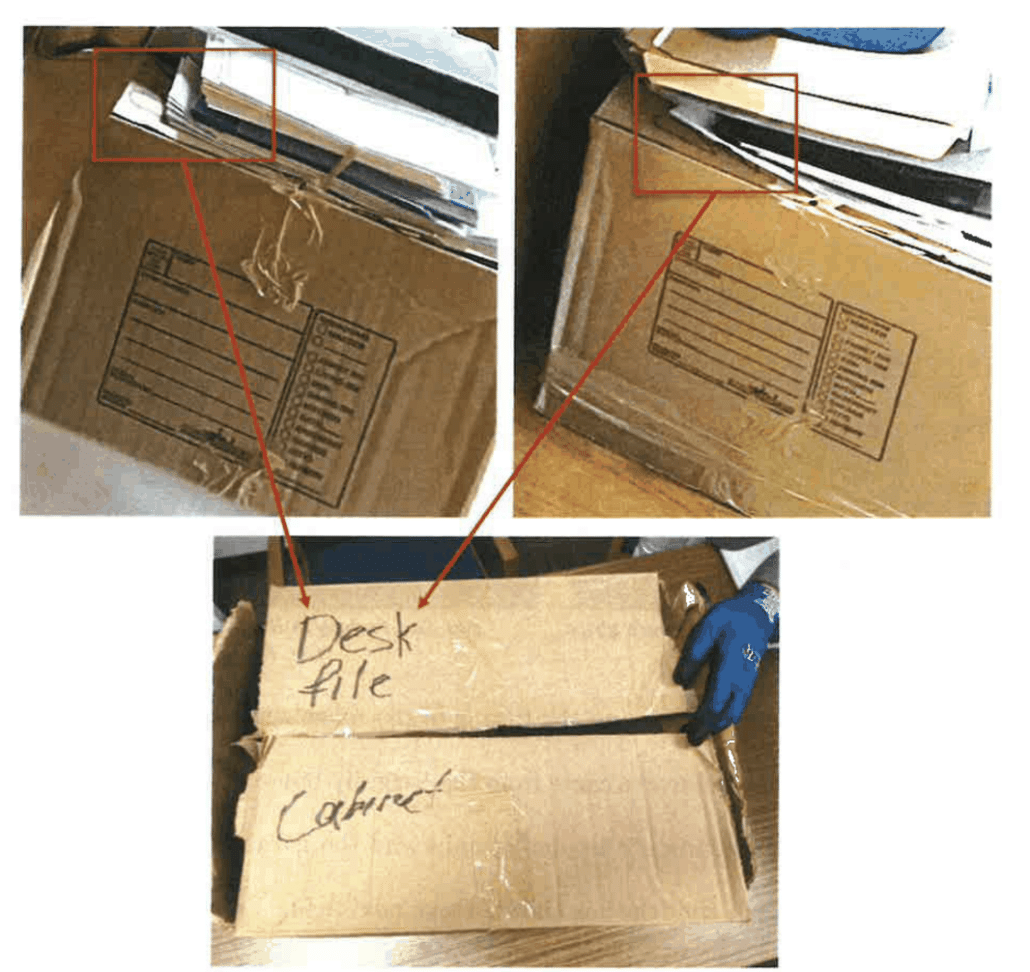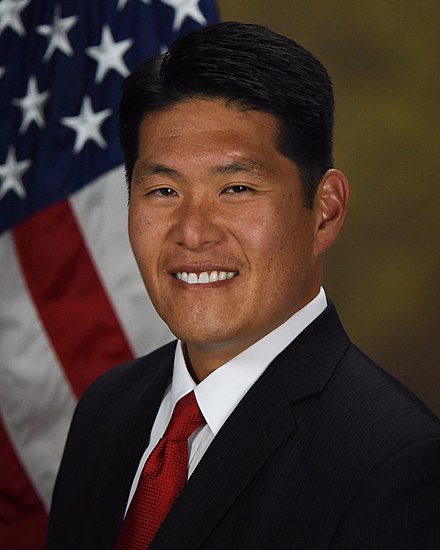Exp[o]rt Reports: When David Weiss Claimed Keith Ablow’s Sawdust Was Hunter Biden’s Cocaine
As Garrett Ziegler was confessing, again, to have accessed a password-protected phone backup (for which Hunter Biden is suing him), he described that this is a photo of a photo in the office of then-still licensed psychiatrist Keith Ablow, which Ablow sent Hunter Biden, explaining that the photo came from an expert carpenter who was trying to kick a coke habit.
Ziegler was even kind enough to include the June 2, 2022 extract date of the iPhone XS iTunes backup where he found the picture, even while bitching of the dishonor and incompetence of David Weiss and his team.
David Weiss says the picture isn’t one of sawdust passed on by Keith Ablow. He says it’s a picture that Hunter Biden took himself of “apparent cocaine” sometime in late 2018.
During November and December 2018, the defendant took multiple photographs of videos apparent cocaine, crack cocaine, and drug paraphernalia.
Weiss doesn’t provide a date for the photo. But he says it came from an iPhone 11 backup stored to iTunes, though he’s not telling whether he found it in an iTunes backup in Hunter’s iCloud account obtained in September 2019, or an iTunes backup found on a laptop attributed to Hunter Biden obtained in December 2019.
iTunes Backup (iPhone 11) – Production 1
Now, perhaps it’s a good thing that David Weiss didn’t know he was (at least per Ziegler, who — bizarrely — has more credibility than the people who have a stack of warrants and lots more metadata) falsely claiming that this picture depicted cocaine. Perhaps that means he didn’t breach Hunter’s privileged communications with Ablow and read what the then still-licensed psychiatrist had to say to his client.
But he has just made the competence of his team’s forensic analysis an issue, and done so in a filing in which Derek Hines appears to be claiming they don’t need any expert forensic reports.
In the motion to compel to which Hines was responding, Abbe Lowell had claimed that Weiss had not turned over any expert reports.
Mr. Biden requested the ongoing production of all materials subject to disclosure under FRCP 16(a)(1)(A), (B), and (D). (See DE 65.) Mr. Biden notes that his October 2023 Rule 16 requests also cover any expert reports that the prosecution intends to rely upon at trial; to date, however, no expert reports or materials have been identified or produced to defense counsel.
The prosecution produced a Delaware state police case file, which includes a summary of an interview Mr. Biden gave police in October 2018 and other information about the purchase, discard, and recovery of the firearm, as well as evidence photos from its case file. The prosecution also produced an ATF case file that has additional information about the firearm and statements about its purchase. Mr. Biden asks the Court to order the prosecution to either (1) confirm no further responsive documents or communications exists in its possession (which includes material in the possession of all relevant government agencies and officials), or (2) produce the requested documents (including any expert reports) and, if the prosecution believes any responsive documents are protected from disclosure, identify those documents and the reasons why the prosecution believes they need not be disclosed.
Not true!, responded Hines in the filing where he appears to have claimed a photo of sawdust taken by a Keith Ablow client was instead a photo of cocaine taken by Hunter Biden.
Hines described that the prosecution has provided two expert reports: that of the FBI chemist who — five years after the gun was seized — found cocaine residue in the pouch in which the gun was found, but didn’t look for fingerprints or try to date the cocaine.
The defendant does not allege any Rule 16 materials are missing from the productions other than one assertion that, “to date, however, no expert reports or materials have been identified or produced to defense counsel.” ECF 83 at p 6. He is incorrect. On November 7, 2023, the government produced to the defendant an expert report prepared by an FBI chemist who analyzed the cocaine discovered on the defendant’s brown leather pouch that had contained his gun.1 In this same production, the government also produced an expert report prepared by an agent related to the interstate nexus of the gun charged in the indictment.2 In addition to these reports, the government produced other materials for these two experts, including CVs, as well as a CV for an additional expert.3 By contrast, the defendant has failed to provide any discovery, including any expert discovery.
In addition, prosecutors provided the CV for the witness who’ll attest the gun had a nexus to interstate commerce and the CV for … Hines isn’t describing what kind of witness that is.
But there are at least four reports I expected to see that are missing:
- The FBI agent John Paul Mac Isaac calls “Matt” who (at least per JPMI, who like Ziegler might be as reliable as Weiss at this point) described trying to boot up the laptop on December 9, 2019, four days before the known warrant to access the laptop
- The FBI Computer Analysis and Response Team analyst named Mike Waski, from whom Josh Wilson claims to have obtained the laptop after he had already obtained the laptop four days earlier from JPMI
- The FBI CART analyst, Eric Overly, who actually imaged the hard drive, which Gary Shapley notes happened after December 13; there may be a different CART analyst who imaged the laptop itself who would be on the hook for another expert report
- A March 31, 2020 email about the completeness of the disk image that JPMI had done, which prosecutors were withholding from any agents who might testify at trial but which Shapley has kindly informed us exists
- Any analysis “computer guy” did after October 22, 2020, which is when the FBI realized they had never bothered to check when files had been added to the laptop they had been using for ten months
Those kinds of expert reports are precisely what might have spared poor Senior Assistant Special Counsel Derek Hines from apparently claiming that a photo of a photo of sawdust taken by Keith Ablow is instead a photo of cocaine taken by Hunter Biden.
For example, here’s how Gus Dimitrelos used EXIF data — EXIF data he says he found on most or all of the photos Hunter took — to validate photos to Hunter on the laptop attributed to him.
In this case, Dimitrelos matched the photo to a known iPhone Hunter used and a known location he was at on a particular date and time.
To use photographs to attribute to Hunter Biden cocaine use, those photos are not only going to need to depict cocaine rather than sawdust, but they’re going to need to be accompanied by the kind of forensic data that could prove that a particular phone taking a picture was in Hunter’s hand at the time a picture was taken.
That’s particularly true in this case. Ziegler shows that Ablow texted this photo to Hunter on November 20, 2018.
That happens to be the day when someone first accessed Hunter’s droidhunter account — the one via which his digital life would be packaged up two months later — from a Mac device for the first time after the laptop ultimately shared with the FBI was first logged into Hunter Biden’s iCloud account.
But based on what is available on the public emails, after someone logged into Hunter’s iCloud account with a new laptop on October 21, 2018, it was weeks before a new Mac device logged into his Gmail accounts, starting with a November 16 attempt to log into Rosemont Seneca that was rejected by Google, followed by a reset of the droidhunter account and a login into that on November 20, followed by a login into Rosemont Seneca on November 24. Not only did those attempts come in the midst of a bunch of attempts to get into Hunter Biden’s Twitter account from a Mac. But on November 27, someone appears to have gotten into his iCloud account from Troutdale, OR.
That is, because this text was sent during a period when some crucially important anomalies were happening on Hunter Biden’s digital accounts, you’d need to ensure that whatever device with which Hunter seemingly engaged in this exchange with Ablow was actually in his hand in Newburyport, MA, and not in someone else’s hand in Troutdale, OR. That’s especially important with any conversation with Ablow, because in at least two known conversations — one in which he created the illusion for Hunter that he was speaking to some orthopedic surgeons, and another in which he entirely rewrote a Hunter comment subsequently published in Vanity Fair — Ablow presented as Hunter.
And by claiming a photo of sawdust taken by an Ablow client is instead a photo of cocaine taken by Hunter Biden, Derek Hines may have spoiled his effort to sand-bag Abbe Lowell and avoid a suppression challenge to all this digital evidence. Sure, Hines is claiming that Lowell missed his window to file a motion to suppress by December 11, 2023. But he apparently just claimed that he hasn’t validated the data he’s submitting, as an officer of the court, in filings before Judge Maryellen Noreika. And with this apparent flub, Hines has definitely made the importance of expert forensic reports an issue.
It appears increasingly likely that before Jim Jordan demanded a prosecution of Hunter Biden and before David Weiss started to worry about threats to his family, Weiss or someone who knew better realized that any prosecution that would rely on this digital evidence would be rife with these kinds of embarrassments. But then Weiss decided he’d go forward anyway, he’d bring in experts in prosecutorial dickishness to try to sandbag their way through the difficulties posed by the laptop.
Don’t get me wrong: Hines and Leo Wise have well earned their reputation for prosecutorial dickishness. This effort to avoid any suppression challenge relating to the laptop might yet succeed!
But without the least little understanding of digital forensics, that may not be enough to sustain this case.
Update: According to someone familiar with Ablow’s office in this period, the photo does appear to match one that was in the office. That’s important because the FBI and DEA would have photos of Ablow’s office from the 2020 raid.
Update: We’ve literally come full circle. Fox News is in a tizzy because of these photos, though they appear more careful than DOJ to claim the sawdust is Hunter’s.

